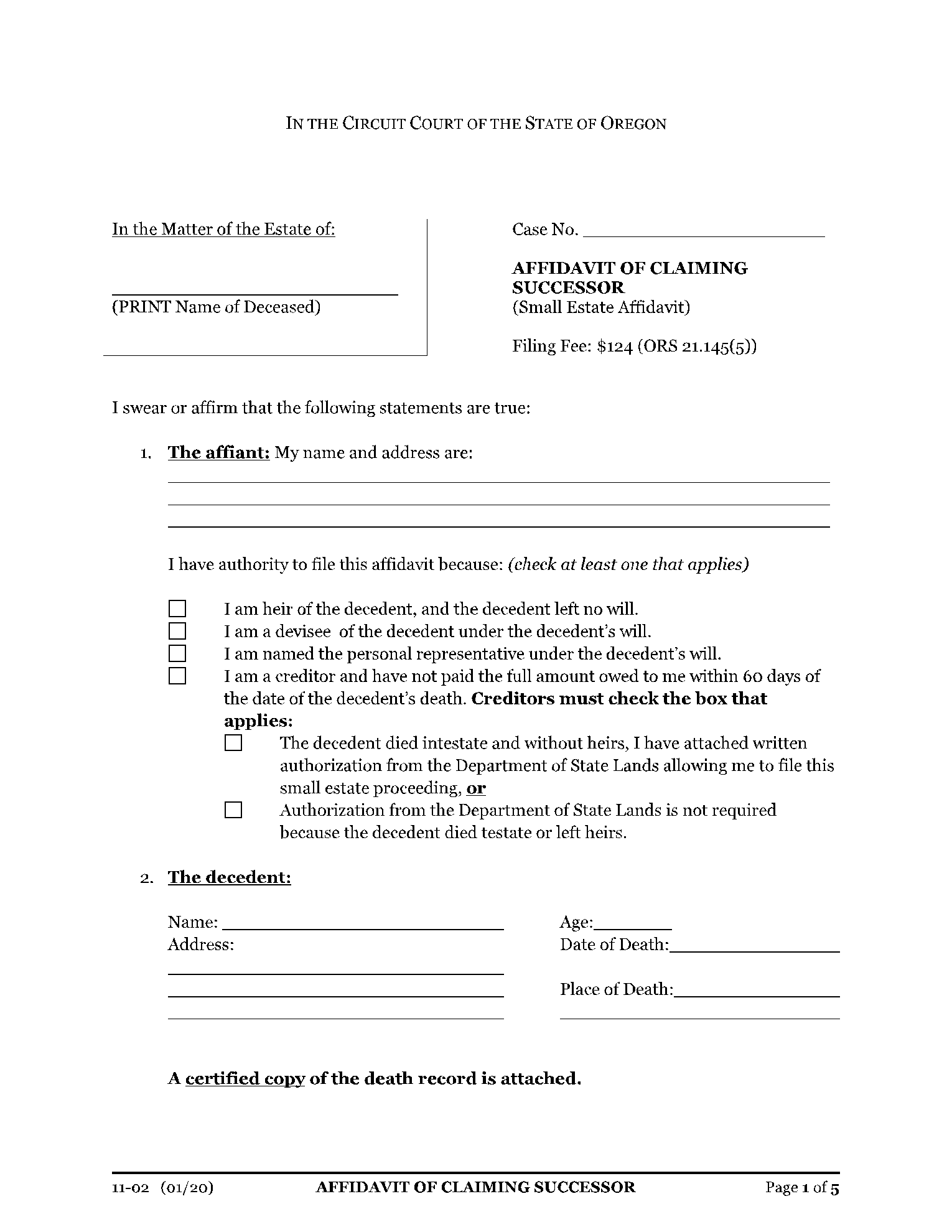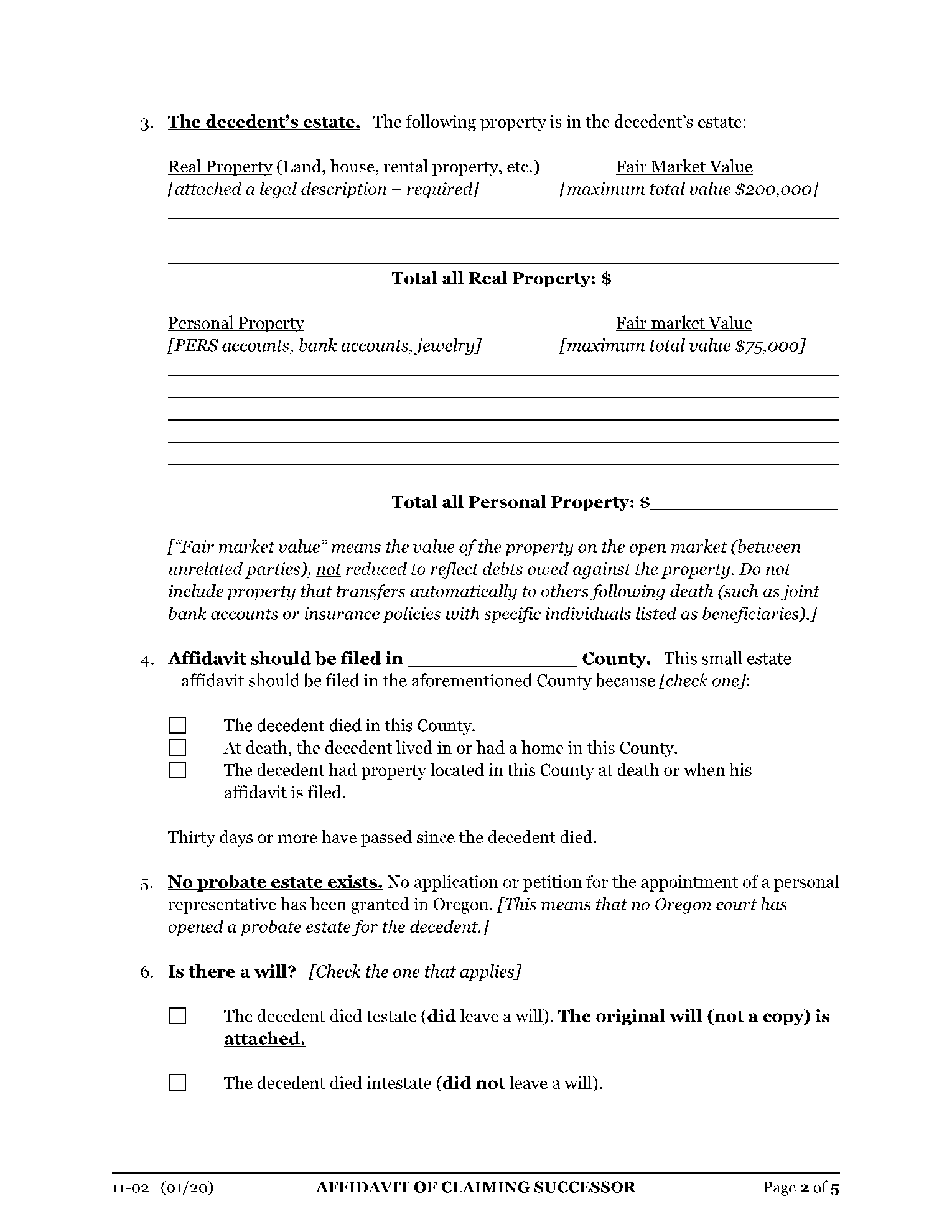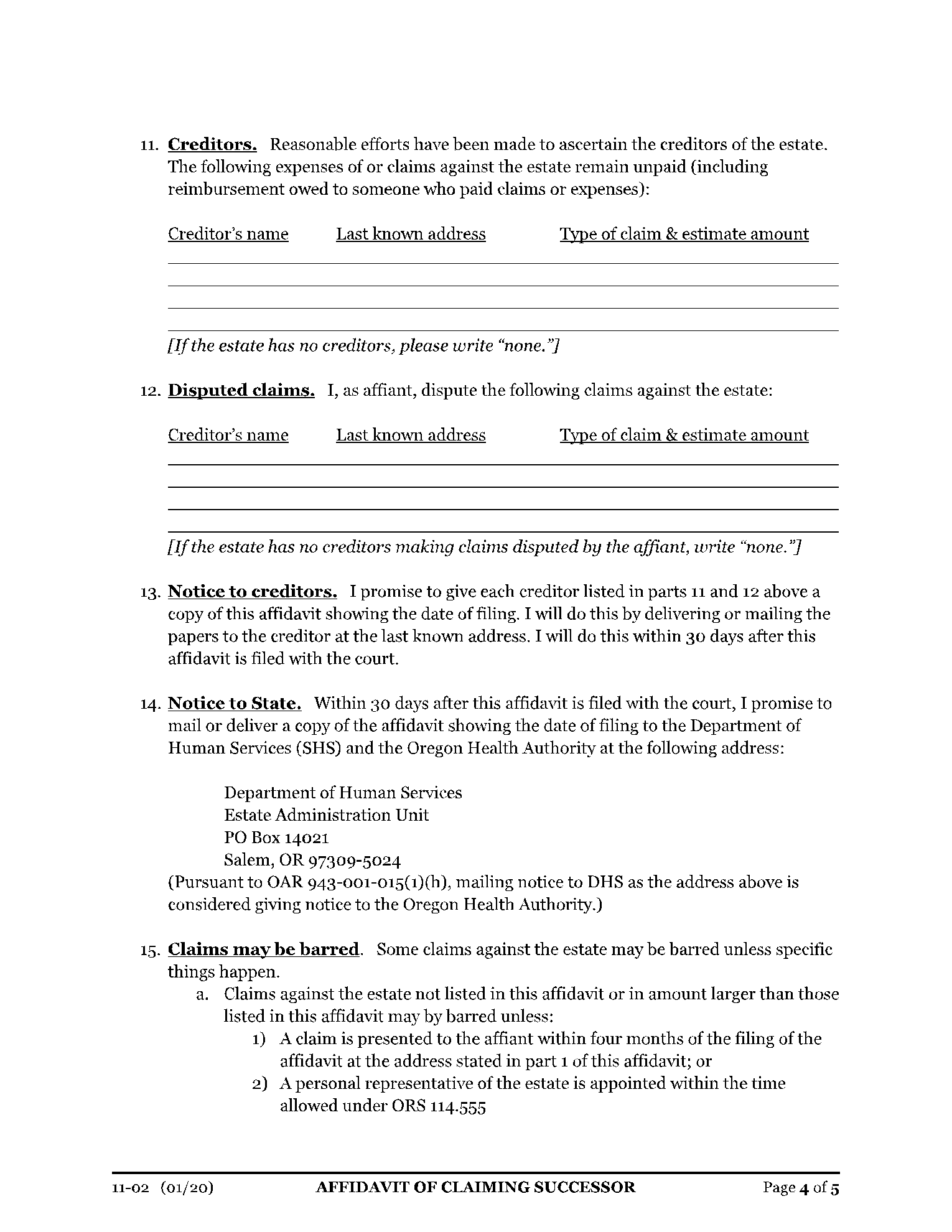When you wish to distribute a loved one’s property after their demise without lengthy court proceedings in Oregon, you may be able to use a small estate affidavit or the “Affidavit of Claiming Successor”. Learn all about it here below. You can also get a free and updated Oregan estate affidavit form above.
What Is an Oregon Small Estate Affidavit?
The Oregon small estate affidavit allows you to distribute the decedent’s small estate without probate proceedings. The decedent’s assets must qualify as a small estate. In the state of Oregon, this means the following:
- The value of the personal property you are trying to claim and distribute is $75,000 or less.
- If real estate is involved, the value of the real estate must be $200,000 or less.
- In total, personal property and real estate must be valued at $275,000 or less.
The value of the small estate is based on the fair value of the property on the open market. Any debts against the property do not reduce the evaluation amount of the property value.
What Is the Process for Using a Small Estate Affidavit in Oregon?
You can file the small estate affidavit only 30 days after your loved one’s passing. Here is the process to follow:
- Wait 30 days. You can begin gathering documents in the meantime.
- Fill out the small estate affidavit form. You must fill it out completely. No section must be left blank.
- Provide a certified copy of the death certificate.
- If there is an original will, take it along with you for the filing.
- Sign and notarize the form. You can do it at the public notary or the probate office.
- File the form at the county court where your loved one lived before their passing. You will have to pay filing fees.
Refer to the relevant Oregon state laws – § 114.515 – for more information.
What Happens If I Make a Mistake During the Small Estate Affidavit Process in Oregon?
In Oregon, unlike some states, you must file the small estate affidavit with the probate court’s office. As such, it becomes a legal document that you cannot change easily after the filing. Mistakes will have legal consequences.
If you are the affiant – the person who applied for the affidavit – then you are held personally responsible. You will have to pay the costs involved and compensate for the loss to the estate.
If you’re unsure about the legalities involved and are yet to file a small estate affidavit, it’s a good idea to consult with a lawyer. Some lawyers will consult with you for a small fee. It’s cheaper than asking them to write the affidavit on your behalf.
Important Information about Small Estate Affidavits in Oregon
Refer to the following information before you file a small estate affidavit in Oregon:
- Convicted felons can’t file the affidavit.
- If the decedent was incarcerated, the details must be included in the document.
- The affidavit must contain all unpaid, undisputed claims against the estate.
- Administrative expenses and attorney fees must be mentioned.
- The affiant or the person who files the affidavit has a legal duty to administer the affidavit. They will be held responsible in case of problems.
For more details, check the Oregon probate laws.
Conclusion
For small, clear successions, the Oregon small estate affidavit becomes a very helpful tool. It can save you a lot of time and money and deal with the complicated administration quickly. If there are problems with the succession, you will likely have to head to court.
Use our free Oregon small estate affidavit template form to quickly create an accepted document in minutes. CocoSign provides free helpful document creation and filing resources, including letters and templates, on our official website.




